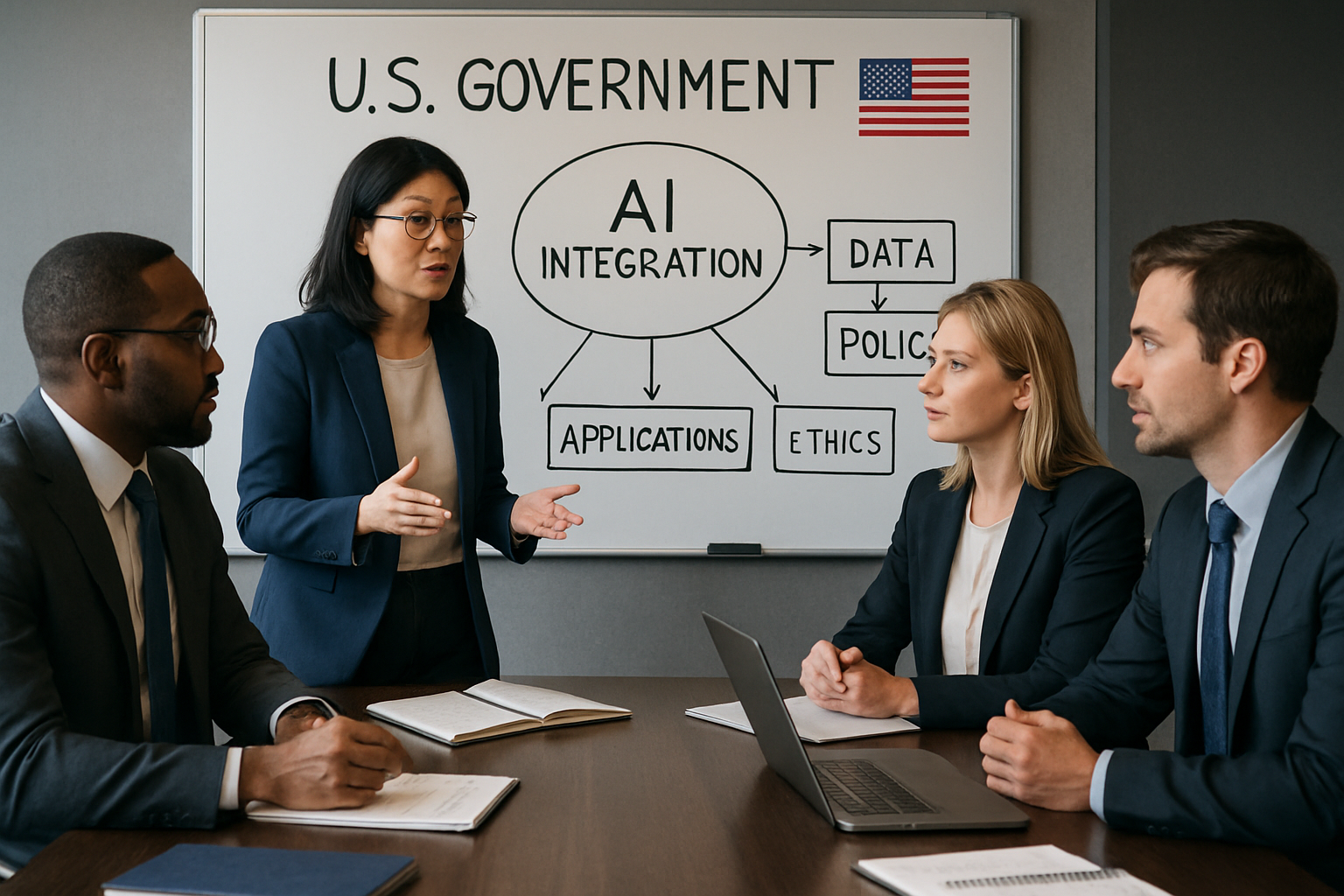Washington Cities Deploy AI for 80% of Tasks Despite Missing Policy Framework
Quick Take
- 80% of state and local IT leaders worry about unclear AI guidelines as cities rapidly adopt ChatGPT
- Bellingham used AI for $7 million grant applications while federal agencies reject AI-generated proposals
- Cities deploy AI for emails, research, and policy work without formal oversight frameworks
- Washington AI Task Force won’t deliver final recommendations until July 2026
- Security risks emerge as staff enter confidential data into unsecured AI platforms
Washington cities are adopting artificial intelligence at breakneck speed, outpacing policy development by a wide margin. A Centre for Digital Government survey shows 80% of state and local IT leaders express serious concerns about unclear guidelines.
Public records from Everett and Bellingham reveal city employees extensively use ChatGPT for everything from constituent emails to multimillion-dollar grant applications. This widespread adoption raises growing questions about ethics, transparency, and security in local government operations.
Cities Deploy AI for Efficiency Gains
Local governments see artificial intelligence as crucial for operational efficiency. Bellingham Mayor Kim Lund points to constituent email responses as a high-use case for AI tools. The city considers this a permissive use of AI because of efficiency reasons, she explains.
City staff routinely use ChatGPT to draft responses about parking, traffic, and other public concerns. Citizens, however, notice the impersonal feel of AI-generated responses. Bre Garcia received an AI-crafted reply to her snowplowing complaint that felt dismissive. “It was like they didn’t read my email at all,” she said. Records show only four human words were added to ChatGPT’s original output.
Public records requests uncovered thousands of ChatGPT conversation logs. City employees use AI for complex tasks including policy research, grant applications, and comprehensive plan updates. Staff used ChatGPT to help draft multimillion-dollar grant applications, including one worth approximately $7 million. They also generated letters of support from elected leaders.
Strategic Approaches Vary Across Cities
Everett Mayor Cassie Franklin strongly supports AI adoption. “It would be silly not to. It’s a tool that can really benefit us,” she states. Staff utilize AI to enhance email tone, summarize meeting notes, and conduct research on enterprise software.
Bellingham takes a permissive approach to AI usage. IT Director Don Burdick encourages staff exploration while maintaining human oversight. “The industry is evolving way too fast. Keeping that sort of grip on things is not productive,” he explains.
Everett follows a more cautious path, restricting staff to Microsoft Copilot for security reasons. ChatGPT use requires special exemptions. “There are a lot more safeguards in the Microsoft product compared to ChatGPT,” said Everett IT Director Chris Fadden.
Security Risks Challenge Implementation
AI adoption raises significant concerns regarding security and privacy. ChatGPT is not a secure platform for storing government data. Some chat logs required redaction because employees entered confidential information, including computer code for tracking homeless encampments and details of active police investigations.
Washington AI Task Force leads policy development efforts warns against entering non-public data into systems like ChatGPT, which could lead to unauthorized disclosures, legal liabilities, and other consequences. However, compliance with security guidelines remains inconsistent across cities.
Accuracy represents another major challenge. Chatbots often fabricate information or introduce errors into official documents. Records indicate ChatGPT introduces errors that require human correction, though most were caught during review processes.
Federal Restrictions Create Compliance Uncertainty
Some federal agencies restrict AI use in critical applications. The National Institutes of Health announced that grant applications “substantially generated by AI” will not be considered, citing concerns about fairness and originality in the review process.
This creates uncertainty for cities using AI for grant applications. Bellingham staff utilized ChatGPT to assist in requesting state funding for cyclist and pedestrian safety projects. Everett employees generated support letters and narratives on racial equity for housing grant applications.
Policy Development Lags Behind Adoption
Washington’s AI Task Force leads policy development efforts. Established in 2024, the task force includes elected officials, business stakeholders, and advocacy representatives who must provide recommendations on AI application in both private and public sectors.
The task force has made one official recommendation so far, seeking to strengthen language against AI-generated child sexual abuse material. Preliminary reports are due in September, with final recommendations by July 2026.
“Technology moves very fast, law and regulation tend to move slowly,” said Yuki Ishizuka, a policy analyst on the task force. Cities require clear guidelines as AI becomes increasingly integrated into government functions.
State guidance recommends labeling AI-generated government content for transparency. However, none of the reviewed records included such disclosure, and cities continue debating whether to require AI use citations.
Both Bellingham and Everett expect to finalize their AI policies before year-end. These frameworks will likely influence other Washington cities as AI adoption accelerates across local government operations, creating precedents for balancing efficiency gains with security, transparency, and accountability requirements.





